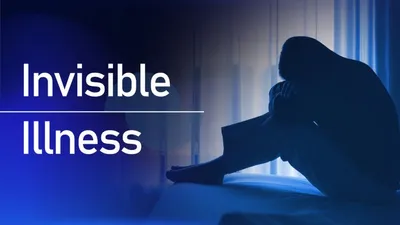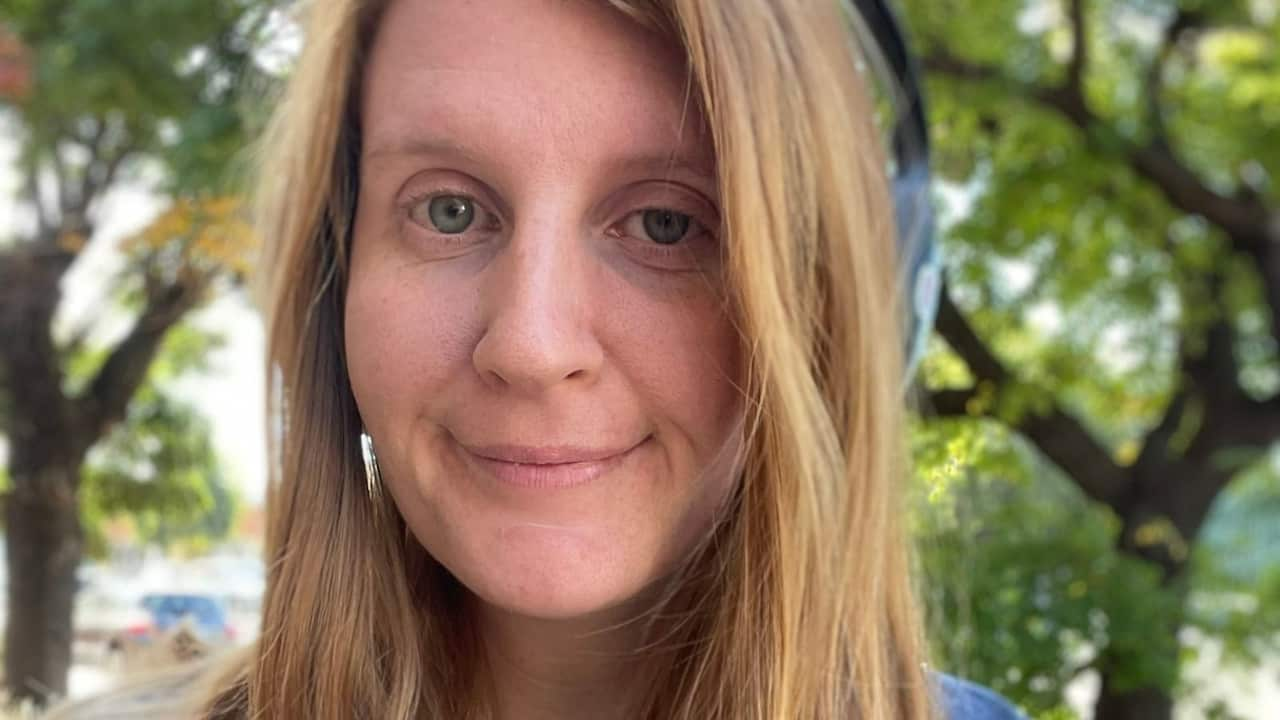Invisible illness or ‘all in the mind’? What are millions of Australians with unseen conditions experiencing and how can our healthcare system better diagnose, support and treat them? In Insight episode Invisible Illness, we explore the daily realities and impacts of those living with invisible, chronic illnesses. Watch Invisible Illness on SBS On Demand.
No one ever says it directly, but I hear the question all the time. In the awkward smiles, the pauses, the way people don’t quite know what to say. How could someone like me possibly be a parent?
They don’t picture school lunches packed sitting down, or playdates coordinated around medical appointments and energy crashes. They don’t see the pacing, the planning, the constant weighing-up of effort and recovery, or a mum who has had to invent a hundred quiet, creative ways to show up.
My journey with disability and invisible illnesses began early. As a child, I often complained of mystery ailments — skin that stung, knees that ached, migraines, and fatigue that made no sense.
My childhood was marked by pain, but it was usually written off as anxiety. At 15, I was diagnosed with fibromyalgia. It wasn’t a particularly helpful diagnosis, unfortunately.
It didn’t change the fact that I was exhausted all the time — struggling to keep up with schoolwork, friendships, and even basic self-care. No amount of sleep ever seemed to help and everything hurt; it felt like my body was working against me.
Instead of understanding or support, I was met with scepticism. Teachers thought I was lazy, and doctors dismissed my concerns. I later learned that I was also Autistic and had ADHD, which explained a lot.
Allie says it’s been a long journey to get her diagnoses. Source: Supplied
‘I began to downplay my symptoms’
The fibromyalgia diagnosis felt like a door closing, every symptom I reported — whether debilitating fatigue, dizziness, or dislocating joints — was ‘just’ fibromyalgia. It was as if the diagnosis gave doctors permission to stop digging deeper.
It felt like I was expected to manage my invisible symptoms on my own, from the moment I was diagnosed as a teen. As an adult, there was no real acknowledgment that I was ill.
Worn down by frustration and defeat, I began to downplay my symptoms and I avoided seeking help. It was an uphill battle to convince doctors those symptoms weren’t “just fibro”. And I didn’t have the energy to keep trying.
Years later, I had a bike accident when I was 29 that resulted in post-concussive syndrome and dramatically worsened all my symptoms.
More than a decade of dismissal had left me distrustful of the medical system and reluctant to seek help; but my symptoms weren’t returning to the baseline I knew before the accident.
That was the push I needed to re-engage with doctors regularly and get the care I’d avoided. I now had a child who needed me, and knew my illness was no longer something I could ignore.
‘Suddenly there was no hiding’
Parenting while disabled has been a constantly evolving experience. There was a sense of safety in identifying as someone with chronic illness — I could fly under the radar.
My disabilities were invisible, and I chose when and how to reveal them. I curated what others saw and kept my struggles hidden.
It was when I started using a wheeled walker, suddenly there was no hiding, and people saw a part of me I’d always kept private.
Despite that, using mobility aids has been the right choice. What initially felt like ‘giving in’, has allowed me to do more with my son — and for longer periods of times.
While all parents make sacrifices, disabled parents often face sacrifices that feel heavier.
There are things I simply can’t do; I can’t chase after him in the park or lift him up when he falls. Our routines look different, our activities, and sometimes, I have to say no when I want to say yes.
My energy is a limited resource to ration, but I don’t always have the option to ration it.
It feels like I’m splitting myself into pieces at times to make it all work as a single and disabled parent.
Every day in the life of a disabled parent is a balancing act. We balance our children’s needs with our own limitations, adapting and problem-solving in ways that might surprise people. Our methods may look different, but it is, no less filled with love.
Disability has changed my parenting. Though, it has never changed my right — or my ability — to parent at all.


